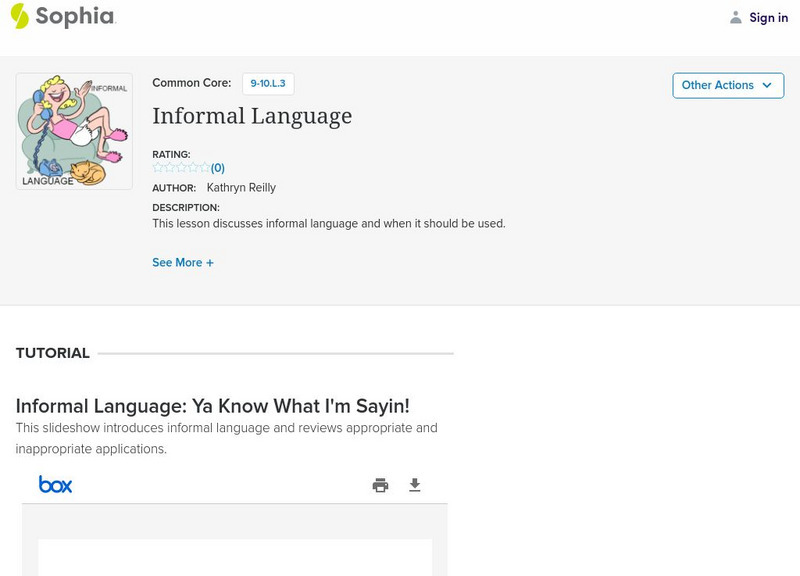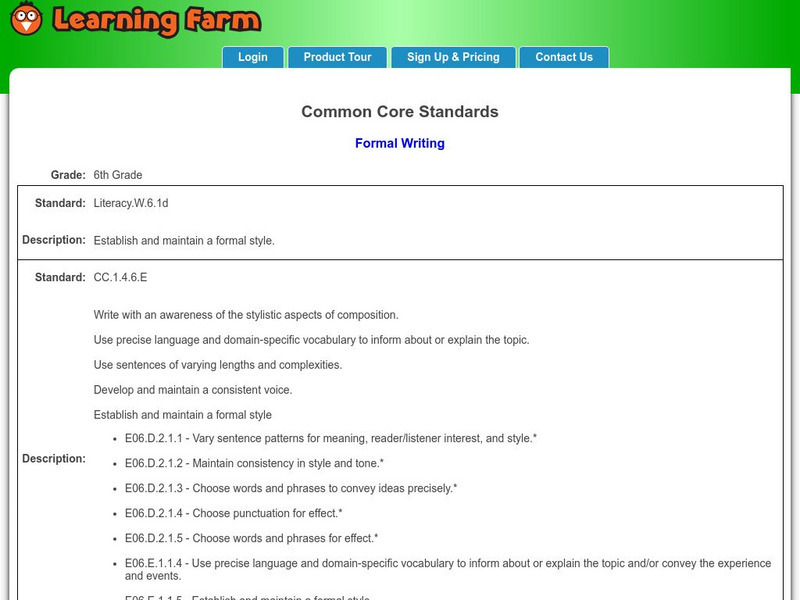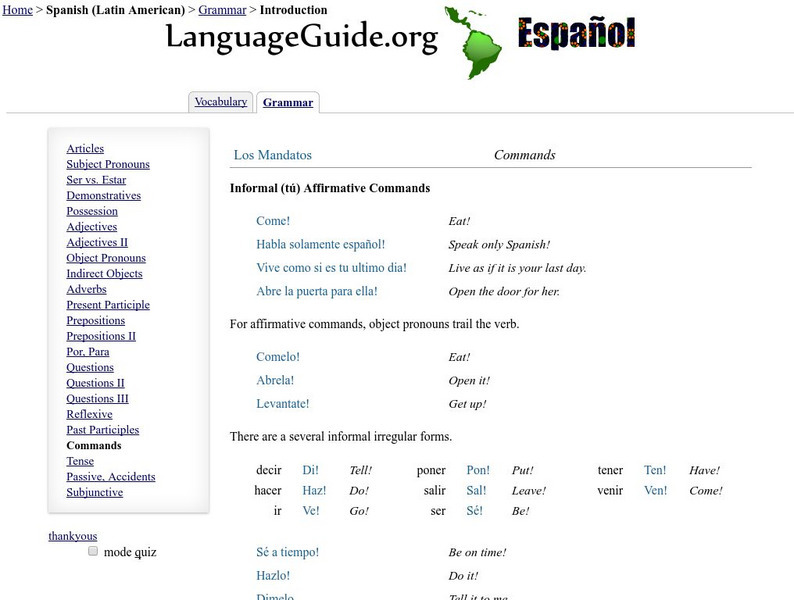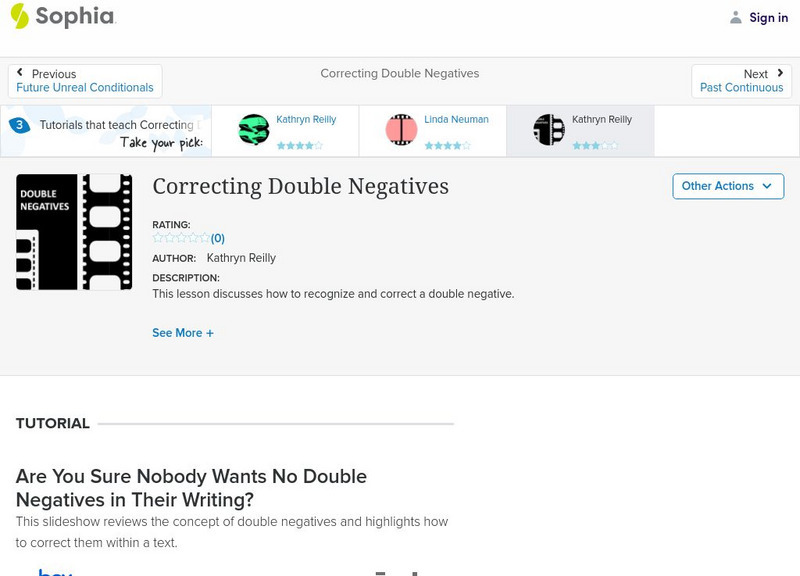Other
Match the Memory: Formal vs Informal Language
Match the Memory Interactive game where players match a word to either formal or informal language.
Sophia Learning
Sophia: Informal Language
This lesson discusses informal language and when it should be used. SL.9-10.6 Adapt to task/formal
BBC
Bbc: Skillswise: English: Formal and Informal Speaking Quiz [Pdf]
Assess the differences between formal and informal speech. Three levels of difficulty with answers provided.
BBC
Bbc: Skillswise: Speaking and Listening: Formal and Informal Speaking
This Skillswise site focuses on formal and informal speaking. Included are a video about how to decide whether to use formal or informal speech, fact sheets and worksheets for instruction. The Skillswise sites from BBC are geared to...
Learning Farm
Learning Farm: Common Core Standards: Formal Writing
Writing formally means writing using words that are precise, objective, and impersonal. This lesson gives examples of formal language and also provides games and a test. CCSS.ELA-Literacy.WHST.6-8.2.e
ClassFlow
Class Flow: Formal Language
[Free Registration/Login Required] This flipchart can be used to understand features of formal official language through, collecting and analyzing examples, discussing when, why they are used; and noting the conventions of the language,...
Grammarly
Grammarly Handbook: Cliches
This page focuse on cliches and explains why they should not be used in formal writing; it provides examples of other words to get the point across more clearly.
Language Guide
Language Guide: Los Mandatos
Formation of informal commands, regular and irregular forms are addressed with links to interactive practice activities. In addition, the formation of formal commands are explained with a link to interactive practice activities. A couple...
Grammarly
Grammarly Blog: Anyway, Anyways, or Any Way
This page focuses on formal and informal use of "anyway," anyways," and "any way." Anyways is very infomal and should not be used; "anyway" is correct to mean "in case of" and "any way" should be used for all other situations. Examples...
Grammarly
Grammarly Blog: Anymore vs. Any More
This page explains the use of "anymore" in informal writing, but in formal writing and anywhere else, "any more" is preferable. Examples are provided.
Sophia Learning
Sophia: Correcting Double Negatives
This slideshow lesson focuses on fixing double negatives. It starts by showing what a double negative really says and how to make it say what they mean. It discusses why they are not used, when they can be used in writing, a list of...
Sophia Learning
Sophia: Correcting Double Negatives
This slideshow lesson focuses on double negatives. It includes defining the term, explaining why they aren't used, providing a list of "no" words, offering ways to correct them with examples, and listing steps to eliminate them in writing.
Sophia Learning
Sophia: One vs. You
This slideshow lesson focuses on the use of "one" and "you." It defines each, explains the differences, tells when to use each, and provides examples.


![Bbc: Skillswise: English: Formal and Informal Speaking Quiz [Pdf] Unknown Type Bbc: Skillswise: English: Formal and Informal Speaking Quiz [Pdf] Unknown Type](http://content.lessonplanet.com/resources/thumbnails/411268/large/bwluav9tywdpy2symdiwmduymc0ymtiwny1jegxunwmuanbn.jpg?1589993555)









